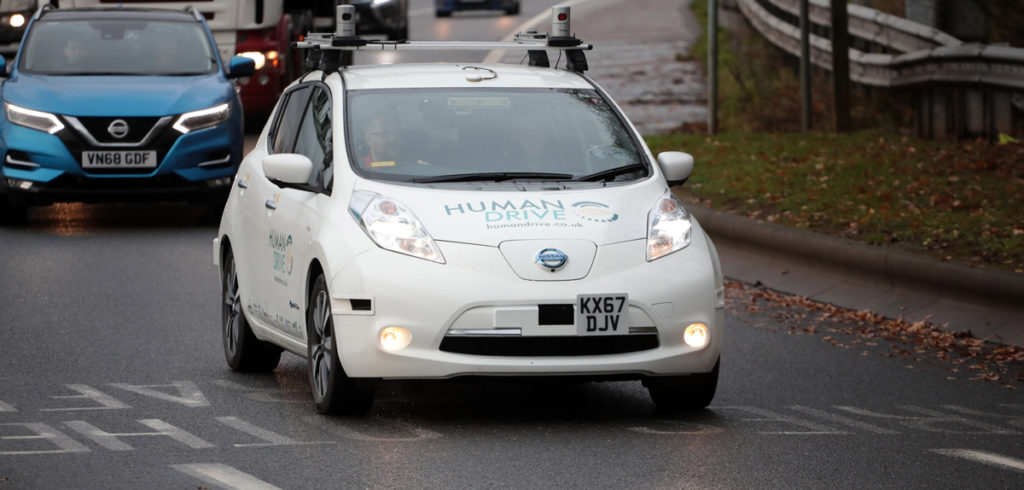British research project HumanDrive has completed a 230-mile self-navigated journey to help autonomous vehicles drive in a more natural manner.
The 230-mile “Grand Drive” used a Nissan Leaf featuring GPS, radar, lidar and camera technologies to build up a perception of the world around it.
The road trip from Cranfield, Bedfordshire, to Sunderland was the culmination of 30 months’ work by the HumanDrive consortium, a team led by Nissan engineers working with partners.
A key aspect was to develop an advanced autonomous vehicle control system, ensuring that it creates a comfortable and familiar experience for customers.
The journey saw lessons put into practice across a range of roads including country lanes with minimal or no road markings, junctions, roundabouts (traffic circles) and highways. The autonomous technology activated along the route to change lanes, merge and stop and start when necessary.
Bob Bateman, project manager for Nissan Technical Centre Europe, said, “The HumanDrive project allowed us to develop an autonomous vehicle that can tackle challenges encountered on UK roads that are unique to this part of the world, such as complex roundabouts and high-speed country lanes with no road markings, white lines or curbs.”
The second part of the HumanDrive project looked at how machine-learning artificial intelligence technologies could enhance user experience.
Vehicles tested on private tracks incorporated AI systems developed by consortium member Hitachi Europe, enabling real-time machine-learning.
By building a dataset of previously encountered traffic scenarios and solutions, it can learn to handle similar scenarios in future and plot a safe route around obstacles.
The UK government’s business minister Nadhim Zahawi praised the project, calling the autonomous drive a huge step toward rolling out driverless cars on UK roads.
“This project is a shining example of how the automotive industry, working with government, can drive forward technology to benefit people’s mobility – while helping to slash carbon emissions” Zahawi said.
The HumanDrive consortium also consists of the University of Leeds to understand human driving; Connected Places Catapult for project management; Horiba MIRA to provide test facilities; SBD Automotive for cybersecurity support and human machine interface studies; Cranfield University to provide test facilities and support demonstrations; Atkins to provide a cybersecurity framework; Aimsun to study the impact of AVs on the transportation system; and Highways England to understand the infrastructure needs of AVs.


